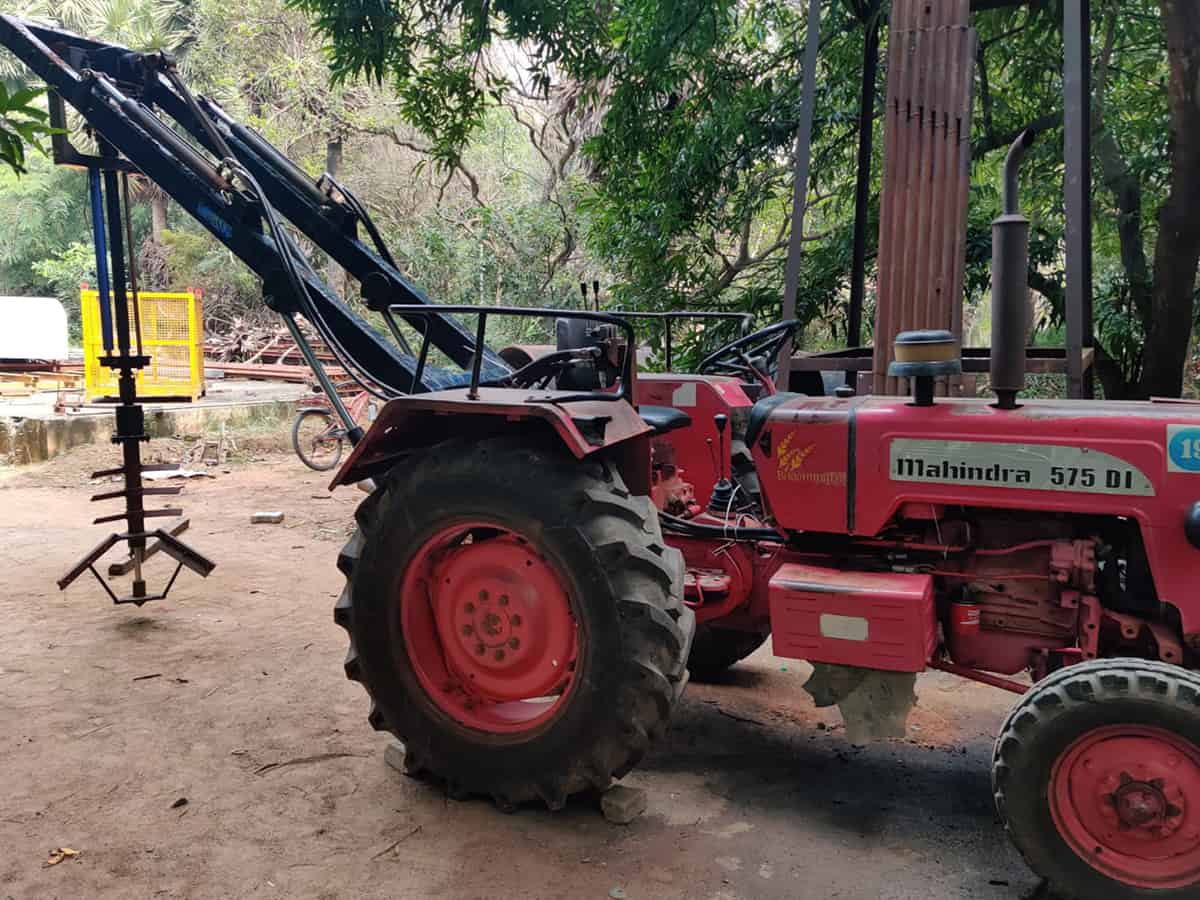

A robot is all set to potentially substitute manual scavenging, the topmost avoidable human labour in India. ‘HomoSEP’ is the robot that can help sanitation workers clean up septic tanks and drains with high degree of safety.
Researchers at the Indian Institute of Technology (IIT), Madras led by Prof Prabhu Rajagopal have demonstrated the efficiency of the robot. It is ready for field applications. About 10 robots will be deployed across Tamil Nadu, after identification of the locations.
The IIT’s Centre for Non-Destructive Evaluation and a startup, incubated at the Institute-Solinas Integrity Pvt. Ltd. have worked closely for a few years to come up with the much needed machine.
The two partners have also been coordinating with Sanitation Workers, and supported by the NGO, Safai Karamchari Andolan (SKA), which has been striving for the elimination of manual scavenging in India in getting inputs for the development.
Despite bans and prohibition on manual scavenging, deaths are regularly reported in the country of sanitation workers involved in the cleaning of tanks, drains and other public places, which are hazardous areas and need extra safety measures.
Robots to halt Scavenging
The first to receive these robots will be two women—Nagamma and Ruth Mary from Tamil Nadu. They were widowed in tragic accidents that killed their husbands who were carrying out manual scavenging.
The two gathered courage and started self help groups (SHGs). Today, they would be a notch happier to receive the first two robots, intended to help sanitation workers.
The SKA has helped these women and coordinated with the IIT, Madras to ensure the first steps towards their field introduction. Locations and SHGs in Maharashtra and Gujarat are also being identified to broad base the applications.
Dr Deepthi Sukumar, National Core team member of SKA says “This is history in the making when Ms Nagamma, a widow of a person who died in a septic tank becomes the owner and an entrepreneur of mechanised septic tank cleaning services.”
Nagamma with the support of SKA is initiating the ‘Safai Karmachari Enterprises’ comprising of members who are former septic tank cleaners and family members of persons who were killed in manual scavenging. This enterprise will focus on changing lives of Safai Karmachari communities with dignified livelihoods providing mechanised sanitation solutions to stop manual scavenging deaths and will engage with IIT Madras for their technical expertise and support, she added.
What the Robot Does
The HomoSEP Robot will homogenise the hard sludge in septic tanks through it’s rotary blade mechanism and pump the tank slurry using an integrated suction mechanism.
The Sanitation workers need a bit of training to operate the robot on their own. They also need to understand the necessary safety measures. The developers are working on it now. Safety plays a vital role in this whole procedure, starting with the design of HomoSEP itself.
The Technology Development
Prof Prabhu Rajagopal of the Department of Mechanical Engineering, IIT, Madras who is the Principal Investigator of the project said, “The Septic Tank is a poisonous environment, filled with semi-solid and semi-fluid human faecal material. Hundreds of deaths are reported every year across India, due to manual scavenging in Septic Tanks despite bans and prohibitory orders.”
The IIT & Solinas intend to empower SHGs, whose key stakeholders are women and particularly those where women have been impacted by the tragic consequences of manual scavenging in the initial phase. The motivation for developing the robot was also the human suffering, they said. Solinas, the startup has been started by Divanshu and Bhavesh Narayani, both alumnus of the IIT among others. It is focussed on water and sanitation.
The HomoSEP was first developed as a final year Masters’ project by Divanshu Kumar under the guidance of Prof. Rajagopal and showcased at the IIT Madras Carbon Zerp Challenge 2019, after receiving seed support from IIT Madras’ Socially Relevant Projects initiative.
Despite the pandemic-related difficulties over the next couple of years, the IIT Madras researchers collaborated with an IIT Madras-incubated start-up Solinas Integrity Private Limited (now headed by Mr. Divanshu) to further develop HomoSEP, says a release from the Institute.
The project was supported first by several Corporate Social Responsibility (CSR) donors starting with WIN Foundation in 2019 for initial prototype development. Between 2019 and 20, GAIL (India) supported further product development and CapGemini supported efforts towards miniaturization and portability. Later the NSE Foundation and L&T Technology Services Foundation have commissioned the fabrication and distribution of 8 and 2 numbers of HomoSEP robots respectively.



